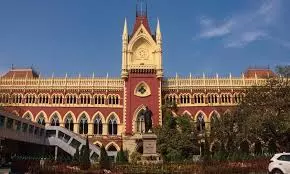
V Senthil Balaji was shifted to the Puzhal Central Prison in Chennai from a private hospital.
New Delhi:
Tamil Nadu Minister V Senthil Balaji and his wife Megala have filed two separate petitions in the Supreme Court challenging the July 14 order of the Madras High Court by which it upheld his arrest by the Enforcement Directorate (ED) in a money laundering case.
Besides upholding the arrest of the minister, the high court had also held as valid his subsequent remand in judicial custody by a sessions court in the money laundering case arising out of the alleged cash-for-jobs scam in the state’s transport department when he was the transport minister.
He continues to be a minister without portfolio in the Tamil Nadu cabinet.
Balaji, in his petition, said, “The very arrest and the remand order were both illegal and contrary to law. As such the impugned judgements upholding the same are liable to set aside.”
Assailing the high court order, the plea said the non-communication of reasons of arrest amounted to a violation of his fundamental right.
The minister also raised several legal questions including whether the officers of the Enforcement Directorate have a right to seek custody of the accused under the provisions of the Prevention of Money Laundering Act (PMLA).
“Whether the officers of the ED, who are admittedly not police officers, have a right to seek custody of the accused under the provisions of the Code of Criminal Procedure,” the petition said.
It also wanted to know whether the power to arrest and power to investigate mandatorily include the right to seek custody of an accused.
Simultaneously, Balaji’s wife Megala also moved the top court against the high court decision. Her petition was filed on Monday.
Justice C V Karthikeyan, who was named as a third judge by the high court to hear the habeas corpus petition of Senthil Balaji’s wife, following a split verdict delivered by a division bench, concurred with the conclusions arrived at by Justice D Bharatha Chakravarthy. Justice Chakravarthy had upheld Balaji’s arrest.
The third judge held that the accused had no right to frustrate the investigation.
Justice Karthikeyan directed the registry to place the matter before Chief Justice S V Gangapurwala to refer it to the same division bench to determine the date on which the ED could take the custody of Senthil Balaji, who has undergone coronary bypass surgery, and to shift him from the hospital.
Balaji was shifted to the Puzhal Central Prison in Chennai from a private hospital on Monday.
In her petition in the high court, Megala alleged her husband was in ED’s illegal custody and prayed that the authorities be directed to produce him before court and set him at liberty.
In the split order, Justice Nisha Banu held the ED had no power to take custody of Senthil Balaji, that the habeas corpus petition was maintainable, and that the time he spent for treatment in the hospital cannot be excluded from the period of remand the sessions court had granted for his custodial interrogation by the federal anti-money laundering probe agency.
Justice Chakravarthy, however, ruled the ED had the power to take Balaji into custody, and the days spent in treatment can be excluded from the period of custody granted by the sessions court.
In his order, Justice Karthikeyan said, according to the complainant, he had given Rs 2.40 lakh (for securing a job in a state-run transport corporation). This was the specific offence of bribery for which an FIR was filed, after which the ED registered the Enforcement Case Information Report (the ED’s version of FIR). Subsequently, Balaji, the transport minister in a previous AIADMK government, was arrested by the ED.
Justice Karthikeyan said, however, the questions as to when the money was given, where it went, and how it was “legally converted” required further investigation.
The judge said on the day the sessions judge handed over Balaji’s custody to the ED, the politician’s condition was bad.
This dissuaded the ED from taking his effective custody. Therefore, the period of hospitalisation has to be excluded from the period of custody, he added.
Referring to the maintainability of the habeas corpus petition (HCP), the judge said in the instant case, though the HCP was maintainable, it was not entertainable.
(Except for the headline, this story has not been edited by replaces the word NDTV staff with empty, and is published from a syndicated feed.)






















































